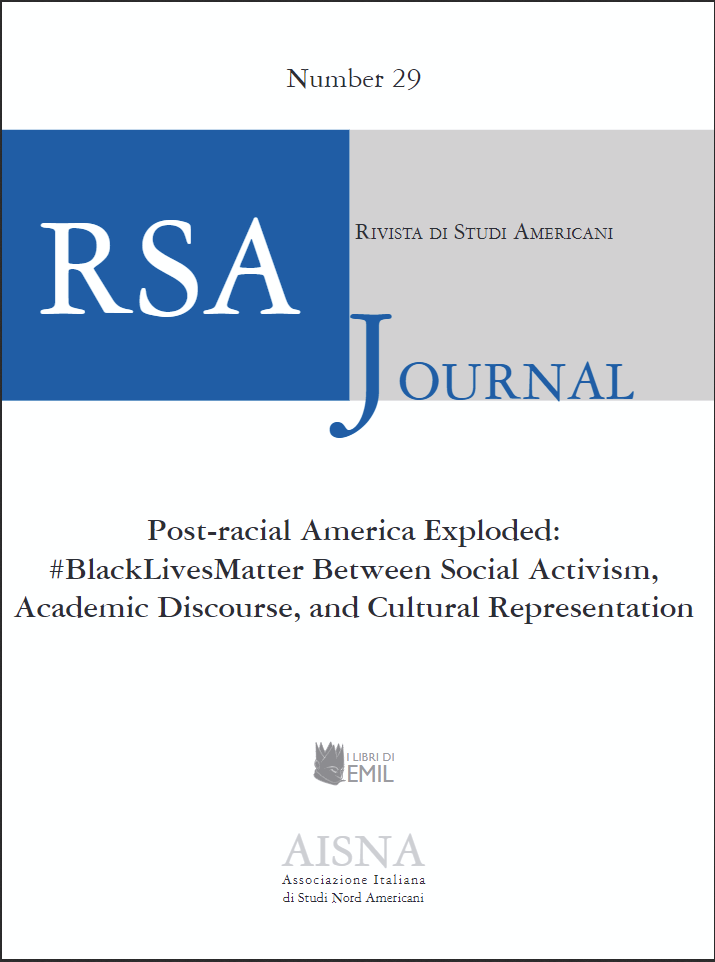Taking Back One’s Narrative
“Dear White People,” Cultural Appropriation, and the Challenge of Anti-essentialism
DOI:
https://doi.org/10.13135/1592-4467/8531Keywords:
African-American identity, cultural appropriation, anti-essentialismAbstract
The essay “Taking Back One’s Narrative” focuses on the 2017 Netflix series Dear White People, created by director and screenwriter Justin Simien. By focusing on the lives of a group of African American students in a prestigious Ivy League university, the series both articulates and interrogates issues and debates that are crucial to an understanding of African-American identity in the US today. In particular, the essay argues that cultural appropriation and the power of narratives are at the thematic and stylistic center of the series, and that the script, the direction, and the actors’ performances contribute to question essentialist understanding of black identity, and deliberately pose more questions than they intend to answer.
Downloads
Published
Issue
Section
License
RSAJournal will apply a CC BY 4.0 license to all its contributions starting with issue 37 (2026). Previous issues are licensed under a CC BY-NC-ND licence.





